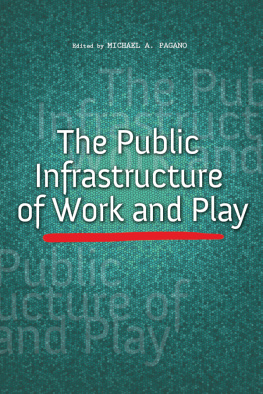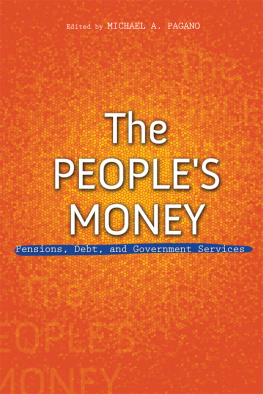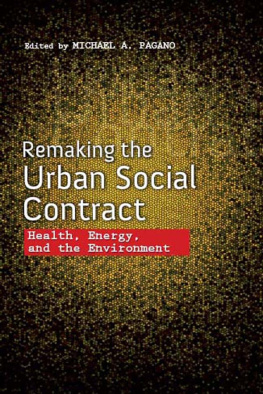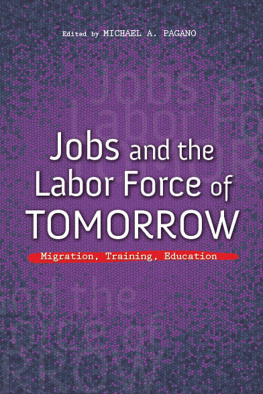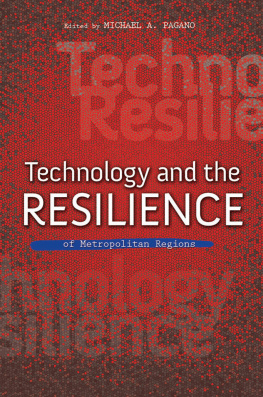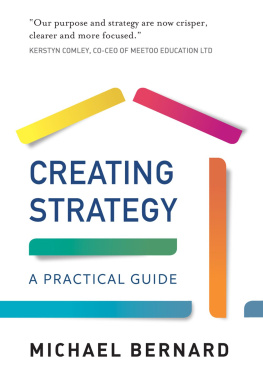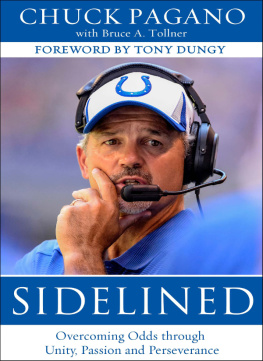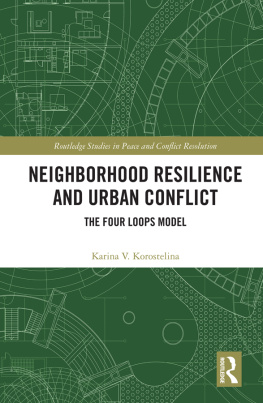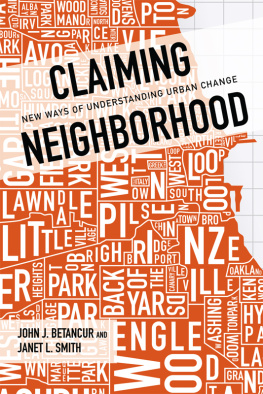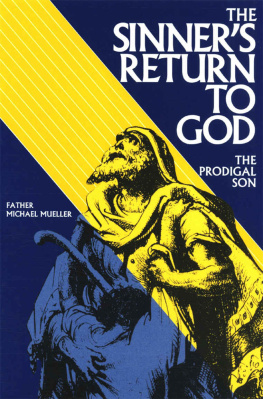The College of Urban Planning and Public Affairs of the University of Illinois at Chicago and the University of Illinois Press gratefully acknowledge that publication of this book was assisted by a grant from the John D. and Catherine T. MacArthur Foundation.
2015 by the Board of Trustees
of the University of Illinois
All rights reserved
Manufactured in the United States of America
1 2 3 4 5 c p 5 4 3 2 1

This book is printed on acid-free paper.
Library of Congress Control Number: 2015946184
ISBN 978-0-252-03989-8 (hardcover)
ISBN 978-0-252-08141-5 (paperback)
ISBN 978-0-252-09802-4 (e-book)
Preface and Acknowledgments
The University of Illinois at Chicago (UIC) has hosted a forum on urban issues since 1995, when the first forum was convened under the auspices of the Great Cities Institute at UIC. The Winter Forum met annually until 2005, convening scholars, public intellectuals, policy makers, and elected officials from the Chicago region as well as from other parts of the country. Starting in 2005, UIC in partnership with the City of Chicago hosted the Richard J. Daley Urban Forum annually for six years. This forum was designed as a convening of key public, private, and nonprofit leaders in an academic arena to discuss, analyze, and propose pragmatic and innovative solutions to enhance the lives of city dwellers around the globe.
In 2012, UIC chancellor Paula Allen-Meares revitalized the UIC annual conference on urban issues, retitling it the UIC Urban Forum, and charging it with the responsibility of bringing together policy makers, academics, public intellectuals, students, community activists, and citizens to discuss, debate, and recommend policy action to the pressing and intractable challenges of cities and metropolitan regions. The activities of the UIC Urban Forum are directed toward two major goals: staging a major annual event to advance a national and global dialogue about the urban future; and disseminating policy options, recommendations, and best practices.
PARTNERSHIP AND COLLABORATION
The UIC Urban Forum works in collaboration with a multiplicity of partners, including foundations, the nonprofit community, governments, the corporate sector, and the media. The partners of the 2014 UIC Urban Forum included the Chicago Community Trust, the John D. and Catherine T. MacArthur Foundation, Abbott, Walgreens, UICs College of Urban Planning and Public Affairs, and UICs Institute for Policy and Civic Engagement, whose financial support was instrumental in the success of the forum. The MacArthur grant was provided as a subvention in support of underwriting the costs of publishing and disseminating the book.
The UIC Urban Forum also partnered with the local National Public Radio affiliate, WBEZ, which supplied moderators for the morning panels. The support of WBEZ CEO Goli Sheikholeslami in strengthening the reach of the forums impact is deeply appreciated.
The UIC Urban Forum also has a contractual partnership with the University of Illinois Press. The edited white papers from the UIC Urban Forum are prepared for a series called the Urban Agenda. Each annual volume publishes the conferences proceedings as well as a synopsis of the panel conversations with local officials from the conference; also included are short reflection pieces on individual white papers and the conversation that ensued at a panel around which the white paper was organized. This volume is the third installment of the partnership between the UIC Urban Forum and the press. The encouragement and insight of Bill Regier, the director of the University of Illinois Press, are gratefully acknowledged. The importance of the presss editorial assistance in improving the presentation of the papers cannot be overestimated. The monograph, as a result, is better and more accessible to a large audience.
Finally, the UIC Urban Forums primary internal partner is the UIC College of Urban Planning and Public Affairs (CUPPA). The project director of the UIC Urban Forum is the dean of the college, and the executive committee consists of CUPPAs director of the Great Cities Institute and a delegate from the chancellors office.
THE 2014 UIC URBAN FORUM
The theme of the 2014 UIC Urban Forum, from which the book takes its title, was The Return of the Neighborhood as an Urban Strategy, and the invitation to attend the event included this statement: Metropolitan regions are a complex web of activities, systems and networks, of people, businesses, and capital, and of commercial, industrial and residential areas. The strength, value, welfare and resilience of cities and metropolitan regions reflect their core building blocks, namely, their neighborhoods. Sustainable capital and societal investments in people and firms at the neighborhood levelfrom micro-enterprises to factories, from social spaces for collective and social action to private facilities, from affordable housing and safety to gated communities, from accessible jobs and transportation to opportunities for growth and development, from public education in the neighborhood to cooperative, charter and private educationreflect contested and diffuse paths to enhancing the quality of life for individuals, households and neighborhoods. The 2014 UIC Urban Forum will engage policymakers, researchers, public intellectuals and citizens in a dynamic discussion and debate about the broad issues surrounding the role neighborhoods can and do play in building strong, livable urban regions.
The 2014 event was cochaired by Cook County Board president Toni Preckwinkle, LISC Chicago executive director Susana Vasquez, and UIC chancellor Paula Allen-Meares. The daylong event was held on September 18, 2014, beginning with two morning panels moderated by WBEZ news reporters. The four afternoon panels were organized around the themes of the four white papers. The first of two keynote speakers, Cook County Commissioner Bridget Gainer, spoke eloquently about the importance of viable neighborhoods to strengthening a metropolitan region and the need to ensure the productive conversion of vacant land in pursuit of that ideal.
The second keynote presentation was made by three middle-school students from Bradwell School of Excellence and their teacher, Linsey Rose. The students spoke passionately of their dreams, aspirations, and goals as well as the role their neighborhood plays in their lives. Just two months prior to the UIC Urban Forum, these three students and twenty-four of their classmates sent the following letter to the editor to the Chicago Tribune (July 28, 2014):



 This book is printed on acid-free paper.
This book is printed on acid-free paper.
